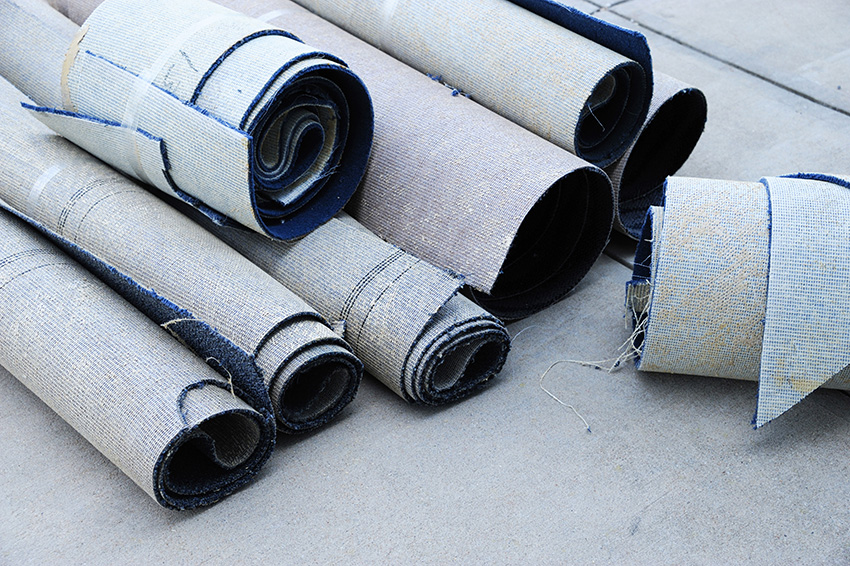
Carpet America Recovery Effort (CARE) will boost subsidies to help keep California carpet recycling companies afloat. | ND700/Shutterstock
A stewardship group is boosting subsidies for California’s carpet recycling companies, which have been hit with a double whammy of coronavirus impacts and low virgin plastic prices.
Carpet America Recovery Effort (CARE), which runs California’s extended producer responsibility program for carpet, announced on March 31 it would shell out more money to help keep beleaguered carpet reclaimers in business. The companies recycle millions of pounds of nylon 6, nylon 6,6, PET, PTT and PP from post-consumer carpet.
CARE’s emergency actions include cutting one-time checks to recycling companies, accelerating subsidy payments, boosting the subsidy rate and more.
“Cash flow considerations for the recycling community were our primary concern in forming this action plan,” CARE Executive Director Bob Peoples stated in a press release. “The current crisis, precipitated by the COVID-19 pandemic and the plunge in oil prices, has seriously interrupted the supply chain for new carpet sales and the flow of post-consumer carpet (PCC) materials into new products. Additionally, the automotive sector, a major user of post-consumer nylon carpet material, has been shut down. The depth and duration of the impact to our industry is currently unknown and cannot yet be quantified.”
In terms of direct financial assistance, CARE will issue one-time payments to recycling companies, an amount that will total about $1.1 million; pay the first 80% of earned subsidies quickly after initial reporting by recycling companies (as opposed to waiting the usual 40 to 45 days); and double the carpet collection subsidy from 2 cents per pound to 4 cents per pound for 90 days.
The group will also monitor the decrease in retail carpet sales and post-consumer carpet availability, coordinate with other stewardship groups, and suspend routine audits for 90 days.
CARE’s program is regulated by the California Department of Resources Recycling and Recovery (CalRecycle). According to CARE’s press release, CalRecycle reviewed the actions CARE plans to take.
CARE also asked the department to take a number of steps, including designating recycling as essential infrastructure and supporting a 90-day moratorium on utility shut-offs or evictions for carpet recycling companies. Additionally, CARE requested that CalRecycle allow carpet recycling companies to skip six months worth of Recycling Market Development Zone (RMDZ) loan repayments.
“RMDZ loans are a major debt service requirement for many recyclers, including carpet,” according to CARE. “This would help with cash flow during the crisis.”
More stories about EPR/stewardship
- Circular Action Alliance submits EPR plan in Oregon
- Committee explores federal role in packaging EPR
- GreenDot closes in North America, RLG changes course


